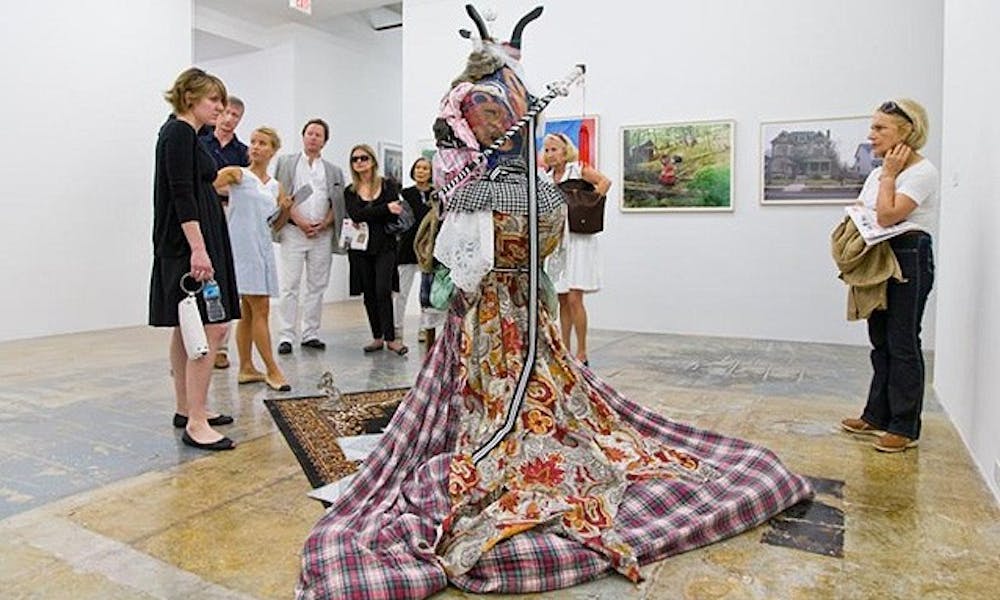With 30 Americans, the North Carolina Museum of Art enriches the local dialogue on contemporary art by African-American artists. The Raleigh museum’s presentation of this show from the Rubell Family Collection is a slightly abridged version of what the Rubell family first presented in 2008. Per the reputation of the Rubells, the work is smart, sharp and cutting edge, especially in its setting at the NCMA.
The NCMA has ably handled the show. Some of the most exciting work—a series of drawings and video from the very queer Kalup Linzy, as well as two stunning, text-based works by Glenn Ligon (currently the subject of a much lauded Whitney Museum retrospective)—is prefaced with a content warning. A suite of magnificent, larger-than-life works by Jeff Sonhouse and Kehinde Wiley are brilliantly grouped together, demanding reverence usually reserved for the Old Masters. Wiley’s wall-spanning “Equestrian Portrait of the Count Duke Olivares” from 2005 inspires awe from its sheer size alone.
The show does more than simply present these works; it places them in dialogue. Short quotations from many of the artists line the walls of the exhibition, announcing the theoretical concerns present here. A sense of history emerges as we see how the younger generation of artists like Mickalene Thomas, Xaviera Simmons, Hank Willis Thomas and Rashid Johnson were informed by their predecessors—Jean-Michel Basquiat, Lorna Simpson, David Hammons, Carrie Mae Weems and Barkley Hendricks. Many of these artists ask about the role of representation, especially in painting, and the history that emerges is indeed an important one largely ignored by many mainstream institutions.
And though this millennia-old question of representation and portraiture is always important, some of the most interesting work are those that resist such explicit identification. Rodney McMillian’s “Untitled” from 2005 (beautifully juxtaposed with a large Leonardo Drew sculpture) is an oddly cut, heavily used and deeply stained carpet. Hung from the wall, it spills onto the floor—unfortunately, the old galleries of the NCMA are still carpeted, diminishing some of the effect of the work. McMillian offers no answers to this work and refuses to identify its source. The work is radically open, brilliant in its elevation of the banal, demanding us to question the association between persons and environments.
Individual works and inevitable omissions aside, 30 Americans is a remarkable assessment of the state of contemporary African-American art.
30 Americans will be on display at the North Carolina Museum of Art from March 19 to Sept. 4. Tickets are available for purchase at www.ncartmuseum.org.
Get The Chronicle straight to your inbox
Sign up for our weekly newsletter. Cancel at any time.

